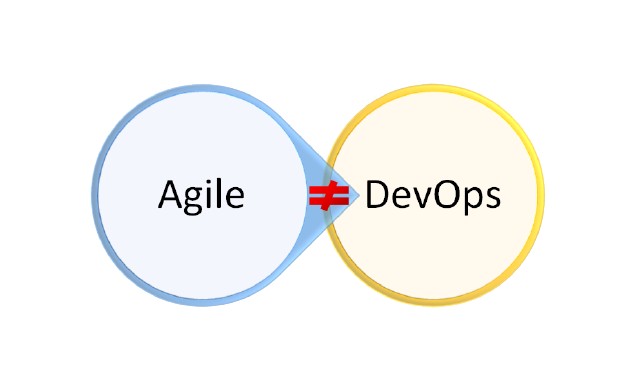The decision to choose between PHP and Node.JS can be a toughie. Both of them are powerful back-ends used for creating dynamic websites for a long, long time. Although both fall under the same umbrella, they host various features that make them distinct and make entrepreneurs’ choices vary.
While many may say that PHP remains to be the “king” of server-side languages, NodeJS has changed the game upon its arrival.
Earlier JavaScript and PHP were like two partners; one took care of all the client-side tasks that were to be performed (JavaScript), while PHP always managed the server-side functions.
However, it all changed when Ryan Dahl invented NodeJS making JavaScript efficient in performing full-fledged application development. NodeJS was launched in 2009, producing a massive number of sites built entirely on JavaScript in both the front-end and the back-end.
Before knowing who wins in this race of “better” back-end technology, let’s first understand both basics.
What is PHP?
PHP stands for Hypertext Processor, also known as the general-purpose language, to make web development easier. The scripting language was created by Rasmus Lerdorf in the year 1994 and ever since has been the top choice of almost all developers for creating any kind of technology panging from content management systems to complex enterprise-level applications.
As of 2018, almost 80{e68b7490c33b031e176c2bf33b49addad56d24bced82f0be9f22b910d6b7f66c} of all the active websites on the internet are coded in PHP, a clear indicator of how popular the technology is.
In fact, CMSs like WordPress (holding 35{e68b7490c33b031e176c2bf33b49addad56d24bced82f0be9f22b910d6b7f66c} of the market share) are also coded in PHP. However, to develop PHP and make optimum PHP use, you would have to hire a PHP programmer.
What is NodeJS?
NodeJS is a Javascript-based open-source, cross-platform runtime environment developed on Chrome’s V8 JS engine, which allows the execution of JavaScript codes outside of the browser. The runtime environment was created in 2009 by Ryan Dahl to create a JS-based technology that can perform asynchronous programming.
Although NodeJS is comparatively less popular than PHP (currently it holds 0.4{e68b7490c33b031e176c2bf33b49addad56d24bced82f0be9f22b910d6b7f66c} of the market share), it is quickly becoming popular among many developers and entrepreneurs.
However, to make use of the brilliant NodeJS, you would have to hire node js developers to carry out your technology’s development providing it with all the benefits that can be obtained out of it.
NodeJS vs. PHP (The Differences):
- Runtime Environments:
Although both PHP and NodeJS can be directly embedded into HTML, they both require an interpreter to run. PHP has been convenient in both installation and running on the server-side, and is supported by the Zend engine.
While NodeJS is a runtime environment, created to execute JavaScript codes, powered by the V8 JavaScript engine by Google.
- Concurrency:
The PHP works synchronously. However, some components work asynchronously. The language uses multi-thread blocking I/O to efficiently carry out multiple tasks parallel to one another.
nodeJS functions asynchronously, which means the JS-based engine runs the entire code in one go and doesn’t have to wait for the operations to return. It utilizes the event-driven non-blocking I/O execution model. NodeJS makes the application a bit faster than PHP does.
Therefore, if you find yourself inclined towards NodeJS, you better hire node js experts to do the task of creating a dynamic technology.
- Modules:
PHP utilizes the module installing technologies such as PEAR (the distribution system and framework for reusable PHP components)
NodeJS uses a package management system known as Node Package Manager (NPM).
- Scalability:
Almost all CMSs, including the most famous ones like WordPress, Joomla, and Drupal, use it, which often makes it a popular choice when developing a blog or an eCommerce platform. Although, one must look for PHP developers for hire if s/he needs to make a website perfect in the first go.
In contrast, NodeJS is a popular technology used for developing scalable and dynamic solutions dealing with a variety of I/O operations. It is also possible for a developer to scale NodeJS on a multicore system. However, more efforts would be required.
- Web Servers:
PHP functions of the webserver called Apache. In the case of Windows machines, it can also be run on the IIS server.
NPM does not require a specific web server; rather, it runs on its own environment.
- Performance:
It is a known fact that NodeJS is comparatively famous for its “high-performing” abilities, PHP has too evolved towards the direction. With libraries such ads ReactPHP, it has become possible for the scripting language to perform event-driven programming.
However, if you compare the two technologies, you may find out that NodeJS runs faster than PHP. This happens for the following reasons:
- The V8 engine is speed friendly
- NodeJS has a continued server connection
- It hosts a callback function that processes multiple requests at the same time.
When to use what?
Both PHP and NodeJS as back-end based technologies; however, if you are looking to develop an application based entirely on JavaScript (to keep it simple), your choice is clear- you must choose NodeJS in this case.
However, if you need to choose just a back-end technology, then we must analyze which one of them suits better in which scenario.
Let’s dig a little deeper:
When to use PHP?
- Centralized Server:
In case your goal is not to scale up your application across various servers, it is efficient to use the LAMP stack (Linux, Apache, MySQL, and PHP). The stack may change as the requirement of your project changes or as it grows.
- Portability:
PHP excels in portability. The cost of web hosting is extremely affordable, and there are a variety of PHP servers available out there on the net. An add to that is that PHP can run on almost any platform that supports IIS and Apache. This makes the PHP based application easy to deploy and portable.
However, it is essential to understand that obtaining maximum benefits from PHP’s ability requires you to hire a PHP programmer.
When to use NodeJS?
- Same language across the stack:
It would be wise to choose NodeJS if you wish to involve software stacks such as MEAN or dynamic SPAs, server-side, or front-end technologies such as AngularJS, ReactJS, or Backbone.JS. This makes having the same language across the entire stack more accessible.
- Speed:
PHP can not beat NodeJS when it comes to speed. If you require an application dealing with high-speed performance, such as gaming applications or chat apps, then NodeJS is the way to go.
Since NodeJS is such an efficient technology, you need to obtain the maximum benefits out of it. Therefore, you must hire node js developers if you wish to create the most dynamic application in the first go.
Conclusion:
The battle of NodeJS vs. PHP is not fading away anytime soon. Since the launch of NodeJS, developers and entrepreneurs have been making “the right choice” of the back-end technology based on their needs and requirements. The one that fits the best to your aims and objectives is the one that will fit the best with your project.
However, it is vital to understand that there is nothing unique that only one of them can do; their abilities are somewhat similar.
Therefore, deciding between one of them must be backed by a professional’s opinion and analysis, as well as the choice of your tech stack.
Also read:



[…] PHP Vs Node.JS: Which Backs Your Back-end Better? […]